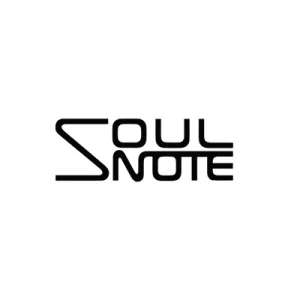DELA

Melco becomes DELA: A New Chapter For Japanese Digital Excellence
Melco were one of the original brands I had in my portfolio when I started Audio Therapy in 2017 and they remain as important today as they did 8 years old.
Initially there was only 1 Melco product available, the N1A music server, but their product ranged evolved over time with more options extending right into the upper echelons of high end audio with their flagship N1 Music Library and the S1 Network Switch.
Melco was founded back in 1975 by Makoto Maki and the name Melco is an acronym of Maki Engineering Laboratory Company, they have a number of subsidiary companies the largest being Buffalo, who manufacture products including routers, switches, NAS drives and USB hard drives.
Melco as we know has always been the audiophile division of Buffalo’s technology empire, but in Japan the Melco brand has always been called DELA – a word derived from the Japanese word for digital. As Melco/DELA has expanded and grown internationally the decision was made to incorporate the Melco brand into DELA and to be able to offer one consistent brand globally.
In simple terms nothing changes other than the badge, the products are designed and developed by the same people, manufactured in the same factory with the same obsessive attention to detail.
This transition to DELA branding has coincided with some new product developments that will further enhance DELA’s position in the market place, a couple of Melco models are being discontinued and the range has been streamlined.
The DELA ranges is made up with network switches, music servers and a couple of key accessories – a USB CD drive for ripping CD’s and an Expansion Hard Drive.
DELA Network Switches

The Melco S100 and S10 switches have both been incredibly popular, certainly assisted by the ‘coming of age’ of streamed music and the fact services such as Tidal and Qobuz can be now thought of as a serious source in their own right. Home networks can be noisy places that can hold back performance and both of these switches offer a superb solution at their respective price points.
With the transition from Melco to DELA both of these switches have been discontinued and replaced by new brand models.
The Melco S100/2 has been replaced by the DELA S50 and the Melco S10 has been replaced by the DELA S5.
The flagship Melco switch was the S1 and this model continues under the DELA brand. The S1 was first announced at Munich High End in 2024 and I can confidently describe the S1 as landmark product and one which is very special.
It delivers a scintillating upgrade to the performance of whatever system you use it with, it lowers noise level, increase detail, clarity and refinement, makes the music more expressive and more real sounding. It really does elevate streamed music to a completely new level.
At £12,499 it’s a serious proposition and will only be used in larger, high end systems. The S10 is a great switch and always went down really well with customers, but the jump from the S10 to S1 is significantly more pronounced than the jump from an S100 to an S10 for example.
In a system with a Vitus RI-101 mk2 amplifier with the streaming board fitted and a pair of Avalon PM1.2 swapping an S10 for an S1 brings about so many improvements I’d argue that even at the price point the S1 offers great value for money.
The new S50 and S5 switches have been designed based on the S1 – they both share more technology trickled down from this model and arguably have more in common with the S1 than the 2 models they replace.
DELA Music Servers

The range of the DELA Servers is to act as a high performance storage device to archive and play your digital music collection, they are also high resolution streamers with Tidal and Qobuz streaming services and they are also Roon Ready Endpoints.
In the DELA range there are 2 servers available, the flagship N1 and the N5.
The DELA N5 is identical to the Melco N5 other than the name on the front, the DELA N1 uses a 4TB SSD storage drive (the Melco N1 used a 3.84TB drive).
These 2 models can be connected into either a USB DAC or a Network Player, depending on your system and preference, some systems will give you the option for both methods. Each DELA server has a dedicated USB port for connecting to a DAC and also a second Ethernet port, labelled ‘Player’ for connecting to a Network Player like the optional DAC streamer board on the Vitus RI-101 mk2 or one of the Naim or Linn streamers.
When you connect to the DELA via its Player Port you effectively isolate your device from the network by placing it into a quieter environment, it receives its internet connect via the DELA and nothing changes in terms of functionality, control, updates etc. Whatever app you uses remains the same and it will be able to see the music which is stored on the DELA.
If you use a USB DAC it is simply a case of connecting the USB DAC port of the DELA to your DAC and you good to go.
There are plenty of options for controlling your DELA when connected to a USB DAC – DELA have their own app (iPad only) and there is also J-PLAY, Linn Music, Lumin, MConnect and Bubble UPnP. The vast majority of people use J-PLAY, it’s reliable and very easy to you, the DELA app also gives you Internet Radio.
Streaming Qobuz and Tidal
If your DELA Server is connected to a USB DAC you have the option to stream music from both Tidal and Qobuz via whatever app you use to control your DELA. This is becoming more and more relevant for people as the performance of streaming has vastly improved over the past few years and it can considered as a serious source in a top end system.
In a well optimised system there is is no doubt that the lines between file playback and streaming have become somewhat blurred and with the addition of a switch it is quite possible to achieve parity.
Some customers prefer stored files and have huge libraries whereas others stream almost exclusively. Speaking personally, I have a large physical library of over 5000 albums, but I still use Qobuz, almost daily, primarily for new music discovery.
Qobuz purchases can configured to automatically download to the DELA (or Melco) server which is useful.
DELA is Roon Ready

All DELA servers that are fully certified Roon Endpoints when using with a USB DAC.
Roon is a great interface to control your music, it integrates your own music on the Melco with your streaming account (Tidal and Qobuz) and combines them into 1 library and it incredibly intuitive. It recommends new music based on what you have listened to and curates your library in a very unique and powerful way, making suggestions on what to listen to based on your listening and reminding you about music you may well have forgotten you owned.
It’s very easy to get lost in Roon (in a good way) when exploring an artists discography and you end up going down the rabbit hole of looking at related artists or artists who have collaborated together.
In order to run Roon you need an active subscription and you also need a computer that is capable of running the Roon Core. Just about any computer can run the Core, but it always best if you operate the Core from a dedicated ‘always on’ machine such as a Roon Nucleus One or an Intel NUC that does nothing else other than run Roon, it is a processor and memory intensive program and it sounds better when running on a dedicated machine.
The requirement of a Roon Core is a downside for many people, but when you have experienced how good the Roon interface is it is often difficult to move away from. If performance is your number one priority I would always recommend J-PLAY over Roon.
DELA D100, E100 and Network Cables

For people with large CD collections and for those who still purchase music on CD the DELA D100 is a superb solution, in its Melco guise the D100 was incredibly popular and was very well received, it is the best option for ripping your CD collection that money can buy.
I’ve supplied a lot of D100’s – most of them are connected to a DELA / Melco server, but I’ve also plenty of customers who use a D100 connected directly to a PC or Mac using dBPoweramp
Weighing in at 3.5kg the D100 is an extremely well built, heavily customised design – using a proprietary Melco circuit board it holds capacitors for the power supply and uses a high quality clock generator, it is not an off the shelf IT drive in a nice case.
The E100 is an Expansion Drive to allow you to expand on the storage capacity of your server, this is a specially selected 8TB HDD, chosen based on performance and reliability. Like the D100 it weighs in at 3.5kg and uses the same mounting solution that implemented in the DELA servers, this keeps vibration to a minimum and maximises performance.
Both DELA D100 and E100 are only available in black
DELA produce 2 different network cables, the C100 which is a standard Ethernet cable and the C1-D20 which is their SFP+ Direct Attach Copper Cable, this cable is available in a 2 metre length. The C100 is a well engineered, sensibly priced CAT6 cable which is available in 1m, 2m, 3m, 5m and 10m lengths.
Both DELA servers and their 3 switches use Ethernet and SFP connectivity. The C1-D20 cable is designed to be used between a DELA/Melco switch and either an N5 or N1. Quite a few other brands now offer SFP connections on their streamers/servers and this cable is compatible with the Taiko Extreme Switch and Extreme Server, the Linn Klimax DSM, plus Aurender, Hi-Fi Rose, SFORZATO DSP-Columba, DSP-Corvus and DST-Lepus.
Anyone who currently uses a conventional fibre cable between 2 components in their system be warned this cable is quite an upgrade.
Summing up DELA
The DELA N1 and S1 are both outstanding product and they have placed DELA into a very strong position in the marketplace. They obviously share the design and are designed to be used together, but I’ve plenty of customers who ‘just’ have an N1 and other customers who own other streaming solutions who have had their world turned upside down with the addition of the S1 into their system.
Products like the Linn Klimax DSM, the Naim ND555 and Grimm Mu2 were all taken to a whole new level of performance with the addition of an S1.
For those who have more modest systems the new S50 and S5 switches offers a sizeable slice of that performance at more affordable price points.
The same can be applied with the N5 server, for those who can’t stretch to the flagship N1 the N5 is a wonderful sounding alternative.
We keep the full DELA range on permanent demonstration.













